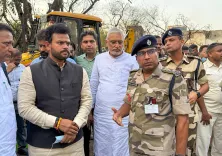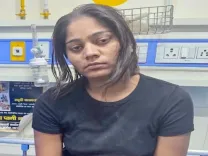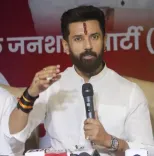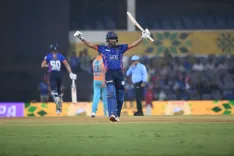Is 'Operation Sindoor' A Diplomatic Failure?
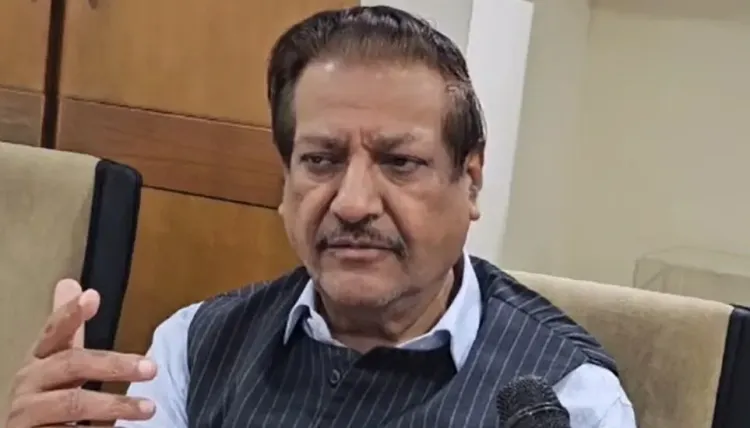
Synopsis
Former Maharashtra Chief Minister Prithviraj Chavan has labeled 'Operation Sindoor' as unsuccessful, questioning the absence of Prime Minister Modi in crucial diplomatic efforts. He calls for a special Parliament session to dissect the operation and its implications. What does this mean for India's diplomatic future?
Key Takeaways
- Operation Sindoor faced criticism for its ineffectiveness.
- Call for a special session of Parliament to discuss the operation.
- Historical precedents exist for special sessions during crises.
- Media coverage of the operation was notably limited.
- Concerns over the absence of top leadership in diplomatic efforts.
Mumbai, June 11 (NationPress) Senior Congress leader and former Maharashtra Chief Minister Prithviraj Chavan criticized the recent diplomatic initiative known as 'Operation Sindoor' as "ineffectual," raising concerns about the lack of direct involvement from India’s top officials, including Prime Minister Narendra Modi, in articulating India’s position on Pakistan.
Chavan has also called for a special session of Parliament to thoroughly assess and discuss the operation.
In an interview with IANS, Chavan remarked, "Sending an all-party delegation abroad was a commendable step and has precedent. It conveys a message of national unity. However, alternative approaches could have been taken. For instance, during her tenure, former PM Indira Gandhi dispatched individual leaders like Atal Bihari Vajpayee to the US and even Jayaprakash Narayan visited Germany discreetly. The key issue is whether the all-party delegation achieved any significant results. Regrettably, the answer is no."
He stressed that the MPs should not bear the blame.
"They performed their duties earnestly. The true failure lies with the Ministry of External Affairs, which failed to organize meetings with key leaders in several nations. A diplomatic outreach can only be deemed successful if it attracts international attention and prompts responses from global leaders—and this time, that simply did not occur."
"The visit received minimal media coverage. Major outlets like BBC or France 24 did not report on it. Only Al Jazeera mentioned it, and their coverage was lacking in detail and insight. The only significant media presence was in Russia. While US Vice President J.D. Vance met with Shashi Tharoor, Vance already has a distinct relationship with India. Overall, the mission lacked impact and visibility."
Chavan questioned the selection of delegates, asking, "Why was there hesitation in sending high-ranking Indian officials abroad? Pakistan’s Prime Minister actively engages with global leaders, including the President of Turkey, while our Prime Minister is absent from these important discussions. If we aspire to convey a strong diplomatic message, it must originate from the highest level, not just from MPs."
Regarding the necessity for a special session on Operation Sindoor, Chavan was adamant.
"Absolutely, it is essential. I believe a three- or four-day special session should be convened. We have historical precedents for this. During national crises, special sessions or national broadcasts have been held—in 1947, 1962, 1965, 1971, and even in 1999 during the Kargil War. In 1947, even without a Parliament, then-PM Jawaharlal Nehru addressed the nation via radio. In 1962, former PM Atal Bihari Vajpayee—then a young MP—set aside political differences to unite with Nehru. These are the examples we should emulate.”
"During the Kargil War in 1999, although Parliament was not in session, Vajpayee engaged in comprehensive discussions with the Opposition. Within two days, a Kargil Enquiry Committee was established. Will PM Modi demonstrate the same openness and urgency? Or is the current government more concerned with appearances than accountability?"
Chavan criticized the Prime Minister’s lack of direct diplomatic involvement.
"Why hasn’t PM Modi traveled abroad to advocate for India’s position himself? He did not participate in the delegation, did not hold any press conferences, and did not meet with any international leaders. Is he solely focused on the upcoming elections in Bihar? Previous Prime Ministers—from Indira Gandhi to Atal Bihari Vajpayee—never hesitated to engage globally during times of national interest. Why is PM Modi remaining silent now?"
Chavan reiterated his call for a special session of Parliament to openly discuss the outcomes of Operation Sindoor, analyze what went awry, and chart a path forward.


